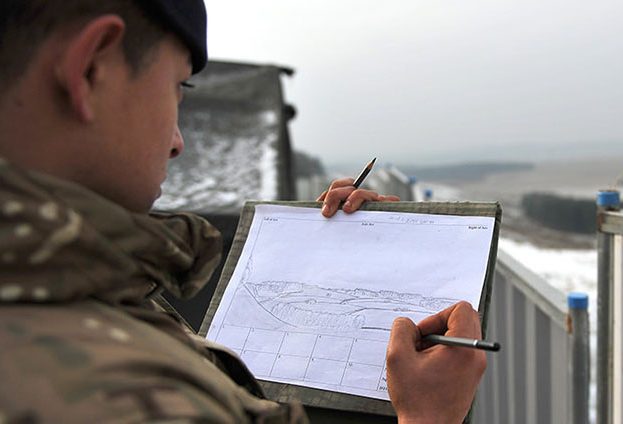
A diverse and inclusive Army brings together individuals with a wide range of backgrounds, experiences, and perspectives. This diversity of thought and expertise fosters innovation, problem-solving, and adaptability, ultimately enhancing the Army’s operational capability.
Diversity and inclusion in the Army is vital for ensuring that all communities and groups are represented and have equal opportunities for recruitment, career progression, and leadership roles. I
The British Army is committed to upholding the principles of equality and fairness, ensuring that all personnel are treated with dignity, respect, and fairness, regardless of their background. Inclusive policies and practices create an environment where everyone has an equal opportunity to succeed and thrive.
The British Army continues to work towards creating an inclusive and diverse environment, promoting equality of opportunity, and addressing any barriers that may exist. It actively encourages individuals from all backgrounds to consider a career in the military and strives to create a culture that values and celebrates diversity.
The British Army offers a wide range of career opportunities across various fields and specialisations. Here are some common career paths in the British Army:
Infantry: As an infantry soldier, you will serve as the backbone of the Army. You will receive training in combat and specialised skills required for ground operations. This role requires physical fitness, resilience, and the ability to work effectively in a team.
Armoured Corps: This branch focuses on operating and maintaining armoured vehicles such as tanks. Armoured Corps soldiers are trained in tank warfare and are responsible for offensive and defensive operations. This role requires technical proficiency, spatial awareness, and the ability to operate in high-pressure situations.
Artillery: Artillery soldiers operate and maintain artillery weapons, providing indirect fire support to ground forces. They are trained in using various artillery systems, including howitzers and rocket launchers. This role requires precision, technical knowledge, and the ability to work collaboratively in a team.
Engineering Corps: The Royal Engineers are responsible for providing engineering support in the field, such as constructing bridges, clearing obstacles, and building defensive structures. This branch offers various engineering specialities, including combat engineering, electrical engineering, and explosive ordnance disposal. This role requires problem-solving skills, adaptability, and technical expertise.
Signals Corps: The Royal Corps of Signals handles military communications and information systems. They are responsible for setting up and maintaining communication networks, managing satellite systems, and providing secure communication for the Army. This role requires technical proficiency, attention to detail, and the ability to work under pressure.
Intelligence Corps: The Intelligence Corps collects and analyses information to provide intelligence support to military operations. Intelligence soldiers gather and interpret data from various sources to help commanders make informed decisions. This role requires analytical skills, critical thinking, and the ability to work with classified information.
Medical Corps: The Army Medical Services provide healthcare support to soldiers on the battlefield and in garrison. There are various medical career paths available, including doctors, nurses, medics, and other healthcare professionals. This role requires medical expertise, compassion, and the ability to work in high-stress environments.
Logistics Corps: The Royal Logistic Corps handles the movement, supply, and maintenance of equipment, ammunition, and other resources. This branch ensures that the Army is properly equipped and supported in various operational environments. This role requires organisational skills, attention to detail, and the ability to manage complex logistical operations.
Military Police: The Military Police ensure discipline and law enforcement within the Army. They are responsible for maintaining order, conducting investigations, and protecting military personnel and property. This role requires integrity, physical fitness, and the ability to handle sensitive situations.
Special Forces: The British Army is home to elite special forces units like the Special Air Service (SAS) and the Special Boat Service (SBS). These highly trained soldiers undertake special operations and missions with a focus on counter-terrorism, intelligence gathering, and unconventional warfare. This role requires exceptional physical fitness, mental resilience, and specialized skills.
These are just a few examples of the career paths available in the British Army. The Army also offers opportunities for professional development, leadership training, and advancement within each specialisation. It is important to research and speak with Army recruiters to get detailed information on specific career options, entry requirements, and the profiles suited to each role.
